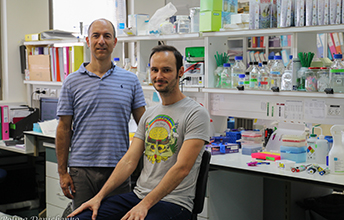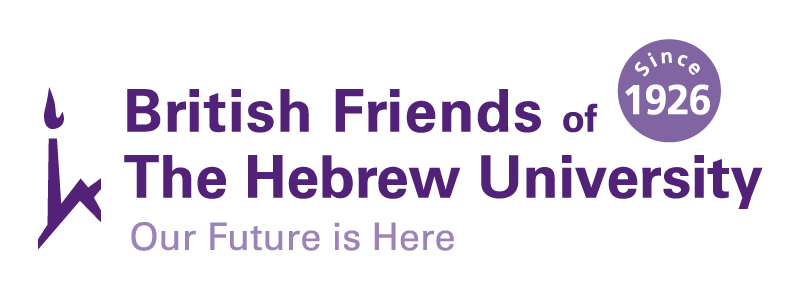Notice: Trying to access array offset on value of type bool in /home/maykdev/public_html/bfhu2020/wp-content/themes/atelier/includes/plugins/aq_resizer-1x.php on line 97
Notice: Trying to access array offset on value of type bool in /home/maykdev/public_html/bfhu2020/wp-content/themes/atelier/includes/plugins/aq_resizer-1x.php on line 98

Glioblastoma is a serious and incurable brain cancer. Patients receiving this diagnosis typically have 11-20 months to live. One of the main difficulties in treating this cancer is that its cells quickly build up a resistance to chemotherapy. In the upcoming issue of Nucleic Acids Research, Professor Rotem Karni and his team at Hebrew University’s Institute for Medical Research-Israel Canada (IMRIC) share promising results for a new glioblastoma treatment with the potential to improve and extend patients’ lives.
As part of their research, Karni and PhD student Maxim Mogilevsky designed a molecule that inhibits glioblastoma tumor growth by regulating the proteins it produces. The MKNK2 gene produces two different protein products through a process called “RNA alternative splicing”. These proteins have two opposing functions: MNK2a inhibits cancer growth, whereas MNK2b supports cancer growth. Karni’s new molecule shifts the splicing of MKNK2 so that production of the tumor-stimulating protein decreases, while production of the tumor-suppressing protein increases. As a result, cancerous tumors decrease or die-off completely.
“Not only can this breakthrough molecule kill tumor cells on its own, it has the power to help former chemotherapy-resistant cells become chemotherapy-sensitive once again,” shared Prof. Karni.
In his study, the mice with human glioblastoma tumor cells that were treated with this new molecule saw their tumors shrink or die off completely, as opposed to the control mice who were treated with an inactive molecule. “Our research presents a novel approach for glioblastoma treatment. In the future, we’ll be able to tailor treatments for patients based on the amount of cancer-inhibiting proteins that their tumors produce,” added Karni.
A patent for this technology has been registered and granted in the United States and Europe through Yissum, Hebrew University’s R&D company.
